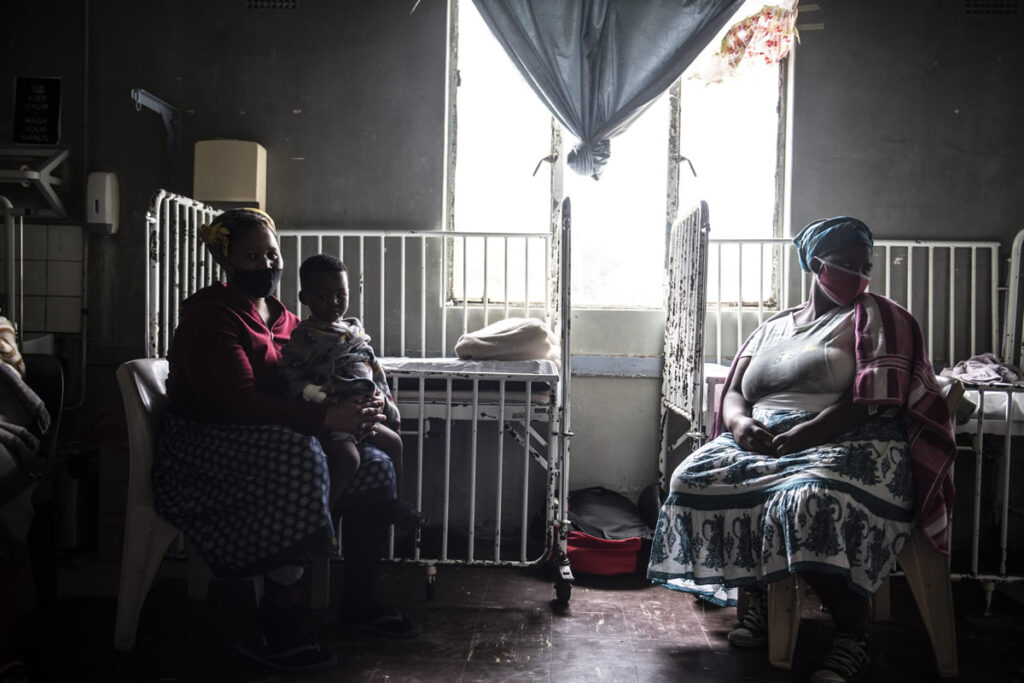- A quarter of South African medical students show signs of depression. Young doctors’ mental health is especially at risk when they first start working at a hospital.
- Burnout is common among health workers too, which makes them more prone to making mistakes.
- A junior doctor at a major state hospital in Johannesburg (who wishes to remain anonymous) recounts her journey to hell and back.
COMMENT
I spent half a decade working to get into medical school, then another six years training to become a doctor, but it took just four months in my dream job before I was completely flattened by it.
I’m now a junior doctor at a major state hospital in Johannesburg. I pushed hard to get a post at this facility because I knew I would get unmatched training.
This hospital’s legacy of chaos is well known, and I realised the stress of working there would likely be worse than what people had warned me about.
But nothing could have prepared me for what lay ahead of me — and I wasn’t ready.
I expected that I’ll work long hours, that I’ll have to deal with losing patients, that there would be unkind seniors and absent colleagues. But I did not anticipate that I’d have to face all of it at once, all the time.
I was walking up to 20 000 steps (about 16km) on a normal day and no matter what I did, the system failed the patients before they even arrived in my ward. I spent the hour’s drive to and from work crying and eating, because there was no time for either on the job.
One day I arrived at the hospital to find a patient’s bed drenched in blood; she had a rare blood condition and had bled all night. The nurses didn’t notice because the night shift was understaffed.
On another occasion, I remember having had to resuscitate a patient for 15 minutes by myself because the nursing staff refused to help. By the time my colleagues arrived, the patient was dead.
But each day I would return, hoping to keep death at bay for my patients for as long as I could.
In May 2021, I cracked. I woke up every day, still tired, and dreading work. Life was a cycle of work, sleep and sobbing.
I didn’t see it coming, even though I’d been working for two months with only two days off.
I was physically exhausted, and emotionally too. The job robs you of moments you can’t get back: religious holidays, important family moments, weddings, funerals.
Every time I tried to figure out how I got to this place, I would retrace my steps only to find that it was all me. I made decisions and commitments that led me to this. For what? Dread, a deep hatred for my job and anger at the path I had chosen.
I felt unbearably alone, even though I knew I wasn’t the only one. For every horrifying story I can tell, other doctors I’ve worked with can give ten more.
I’ve spoken to colleagues all around the country and time after time health workers — from juniors to those who’ve been at it for years — all relay how they are brought to a standstill by the mental toll of this job.
The world’s doctors are detached & dissatisfied
Looking back, I realise that I was close to burnout last year.
The World Health Organisation says people get to this point because of “chronic workplace stress that has not been successfully managed” and lists feeling exhausted, detached from your job and getting less and less satisfaction from it as tell-tale signs that someone’s job has pushed them to their breaking point.
It’s something many doctors experience, and although there aren’t consistent figures (because methods to measure burnout rates among health workers aren’t standardised), research shows that the signs of burnout are seen in more than 80% of physicians.
It’s not surprising.
[WATCH] What makes a good doctor? Why school marks aren’t everything
Studies, both from South Africa and elsewhere in the world, reveal that medical students experience a high mental health burden, with as many as one in four students showing symptoms of depression, especially when they start working in a hospital. And in the midst of the COVID-19 pandemic, hospital health workers had to deal with even more stress because of relentless workloads, many patients dying and uncertainty. Young doctors, who already experience high stress levels, were particularly vulnerable to burnout, a study from the United Kingdom found.
Crawling back to health
I’m grateful that I had people around me when I reached breaking point: trusted colleagues I could turn to; family who tried very hard to understand even when they didn’t; a therapist willing to see me after hours.
I managed to crawl out. But not everyone does.
And this can have devastating consequences — not only for doctors’ own mental wellbeing, but also for patient care and the broader health system.
Research shows that doctors who are burnt out, or close to it, make more mistakes. They also struggle to make decisions, lose compassion for their patients and may ultimately leave the system, which a public health sector that’s already buckling under the load can ill afford.
But there are things that can help health workers to become more resilient, which may carry us through stormy times — perhaps not unscathed, but at least intact. And building these skills as students already may help young doctors to cope better when they start working.
Support programmes such as talking to a counsellor or practising mindfulness are some tools that can help, and a small study among medical students from the Western Cape showed that participating in a structured online programme significantly improved students’ mental wellbeing and stress management.
Setting up a system where students can talk to peers can also be part of the solution. A study among medical students at a university in the United States revealed that both the person offering support and the one seeking support benefit from talking about their work-related stress. Similar programmes have popped up at many medical schools in several countries over the past two years, perhaps driven by the increasing mental health burden brought on by the COVID-19 pandemic — to such an extent that young doctors have called for peer-support to be incorporated into medical students’ training.

Recovery without hope
I don’t cry every day on my way to and from work anymore; I guess that’s a type of recovery.
What I feel now is closer to hopelessness.
I don’t know what I can do to improve things for my patients because I cannot imagine the public health system changing.
At the very least, though, my experience has taught me that having compassion for myself will help me to keep treating my patients with care.
I’ve also learnt to look at my colleagues who lack empathy with kindness and my harsh seniors with some care, because I don’t know where they are along the chain of brokenness. Everyone has a story and everyone carries around the burden of seeing how their job has whittled away their joy.
Changing the state health system’s crises is complicated. It’s something outside the scope of the doctors who show up for work every day. But perhaps the first step is acknowledging that doctors aren’t heroes; they’re humans trying to do a superhero’s job.
The author of this opinion piece, a junior doctor, has requested anonymity to ensure they are not victimised; their identity is known to Bhekisisa.






